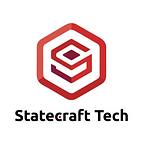Early Experiments With Blockchain Taking Hold in K-12
【 Published by EDWEEK Market Brief | Editor: Brian Bradley 】
Recent developments in technology are changing the labor market, pressuring high schools to document learning faster.
Blockchain could eventually play some role in helping employers and others to verify students’ educational credentials. But efforts to test blockchain’s potential role in education verification are still early, according to a recent report released by the American Council on Education.
Government agencies and several large corporations in recent years have closely studied blockchain as a means to safeguard data and transactions.
Efforts in the education field are fledgling. Many initiatives are at the proof-of-concept or pilot stages of testing, according to the ACE report, but an “ecosystem” approach shows promise in Dallas.
Blockchain refers to distributed, encrypted records of events that are grouped into individual, digitized “blocks.” After being validated by parties involved with the transaction, the “blocks” are linked in a chain, forming a secure historical record.
The ACE report is the result of a six-month study on the use of blockchain technology in various areas of education and the labor market, as part of the U.S. Department of Education’s Education Blockchain Initiative.
The report explores the potential for blockchain to help people better communicate the skills, experiences, and credentials they have gained in their education.
The report lists several examples of efforts to promote blockchain in education, including the K-12 space.
Among them:
- A platform provided by RANDA Solutions that stores demonstrations of curriculum development, as well as digital wallets containing teachers’ verifiable digital credentials and all individual components of their license, easing the process for states to onboard new teachers from in and out of state, for districts to track documentation, and for teachers to transfer to different districts.
- A platform called GreenLight which removes barriers for students — particularly first-generation and low-income students struggling with college enrollment — to get accepted into college and employment by giving them 24/7 access and complete control of verified academic records. These records include transcripts, badges, certifications, references, and recommendation letters. Texas districts including the Dallas Independent School District, Mesquite ISD, Garland ISD, and Grand Prairie ISD, use the program, which involves encryption and digital signatures of student records. Users may grant and revoke access to their records anytime. The program also includes the Dallas Community College District, a network of seven community colleges in Dallas County, and allows students to apply to many colleges and for many scholarships at the same time, streamlining the application process.
- IBM Learning Credential Network, which EdWeek Market Brief reported on in December. The “learning credential blockchain” allows for the sharing of digital records that are “tamper-evident,” meaning students could see if their records are secure, or have been interfered with.
- International Journal of Open Educational Resources, an open-access, double-blind peer review journal published twice per year and sponsored by the American Public University System and Policy Studies Organization. The journal is published using WordPress and has been experimenting with providing researchers proof of authorship using two plugins: WP Blockchain and WordProof, which provide historical records of when content was published and any subsequent changes.
- San Jose State University School of Information project wherein researchers used a federal grant to explore blockchain’s potential uses in libraries. The researchers are currently seeking funds to experiment with a blockchain to enable individuals with verifiable digital credentials to access resources at all participating libraries.
The report highlights the GreenLight credentials project as having the right baseline ingredients for a successful blockchain initiative.
The key to that project’s ongoing success, according to ACE, is that it is predicated upon an existing ecosystem of K-12 public schools, employers, area four-year colleges, food banks, and workforce development and public transportation agencies, all of which are focused on student and worker success. Those entities all share complementary data points that compose a learning record, according to the report.
Therefore, ACE recommends an “ecosystems first” approach to build trust and encourage the adoption of blockchain.
“Early blockchain in education pioneers are quickly discovering that preexisting ecosystems, with stakeholders that have already agreed on problems they want to solve together with regard to student and worker success, are a critical resource for blockchain technology to take hold and add value,” the report says.
Nonprofit clearinghouse Credential Engine documented 46,209 unique credentials from public and private secondary schools issued in 2019.
The growth in credentials from these education providers creates a challenge in documenting, verifying, and sharing data about whether learning has occurred between stakeholders, according to the report.
“Experimenting with blockchain in credentialing can benefit all stakeholders,” the ACE report says. “Verifiable transcripts and CVs can make it possible to display life experiences that can match the increasing complexities of employer and worker needs.”
■ Source: EDWEEK Market Brief
■ Note: Please specify the source or references of the article for reproduced.
■ Solemn declaration: We reproduced articles and news for purpose of sharing information. Copyright belongs to the original author. If there is any infringement/error, please contact us as soon as possible, modify or delete action will be implemented immediately. Content analysis is for information purposes only and does not constitute any investment advice.
■ View Disclaimer: the views, thoughts, and opinions expressed in the text belong solely to the author, and not necessarily to the author’s employer, organization, committee or other group or individual.
■ Please visit our site: Statecraft for more information and the latest news update.
■ Follow Us 👉 Instagram| Facebook | Telegram | Twitter | Youtube | Linkedin | Line@
■ Business Contact: blockchain@statecraft.ltd
